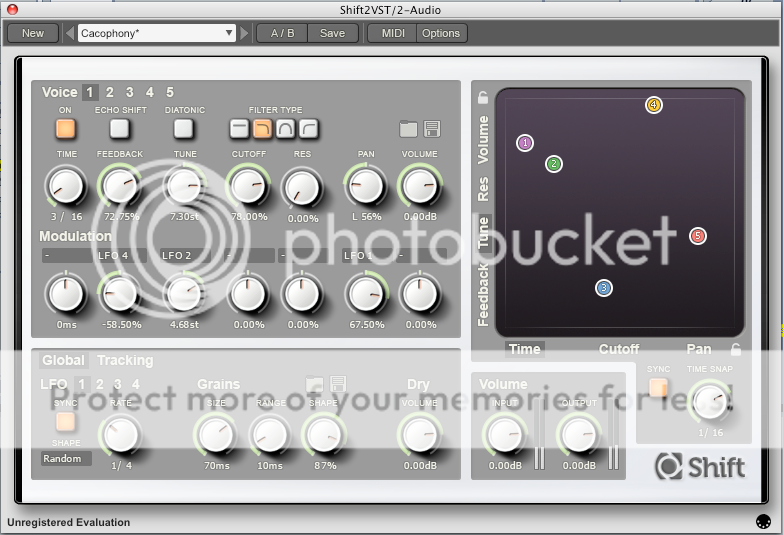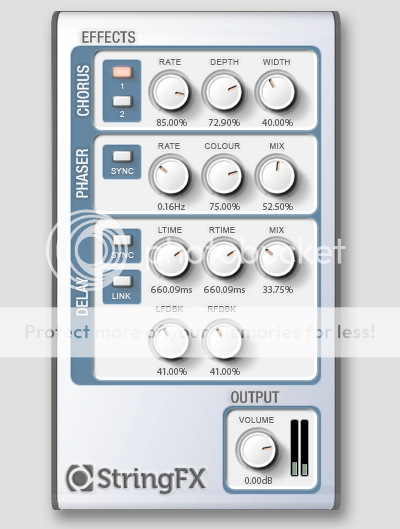Some of the many improvements in Shift v2:
- Better diatonic tracking. Not only is the tracking faster and more accurate, we've added filters to reduce the signal bandwidth (and hence, make it easier for the tracker to guess the pitch), as well as a real-time tuning indicator to help you finely hone the tracker settings. Plus you can save tracking presets independent from the main preset; if you've found a setting that works great with your particular style of playing, you can easily bring it into any preset.
- Better interface: most noticeable the XY Grid control for real-time simultaneous 'playing' of two parameters.
- Grain engine parameters: tweak the fundamental grain settings to improve latency and quality.
- Improved preset browser, with all the usual features such as tagging, annotations, quick searching, and hot-swap previewing.
- 64-bit: Shift v2 is native 64-bit for Windows VST, and Mac OS X Audio Unit. Other 64-bit formats coming soon...
Registered users of Shift v1 can claim their free licence upgrade here.








